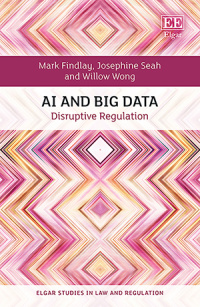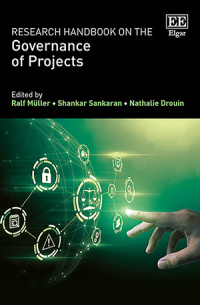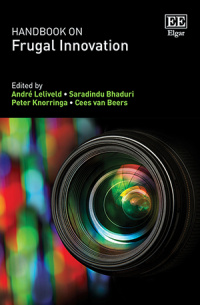
Hardback
Handbook of Social Computing
Responding to the increasingly blurred boundaries between humans and technology, this innovative Handbook reveals the intricate patterns of interaction between individuals, machines, and organizations. Using cutting-edge data and analysis, expert contributors provide new insight into the rapidly growing digitalization of society.
More Information
Critical Acclaim
Contributors
More Information
Responding to the increasingly blurred boundaries between humans and technology, this innovative Handbook reveals the intricate patterns of interaction between individuals, machines, organizations and beyond, even including AI-extended human interaction with animals and plants. Using cutting-edge data and analysis, expert contributors provide new insight into the rapidly growing digitalization of society.
Chapters span disciplinary boundaries, covering both computer science and AI, as well as sociology and psychology, to encompass all aspects of social computing as an emerging field. They also examine the complexity of social networks and algorithmic decision-making whilst drawing on case studies from diverse industries and exploring important issues, such as the ethical implications of AI, data privacy regulation, and safe data sharing. Ultimately, this Handbook illustrates the diverse ways in which digital technologies can be used to analyze social behavior, recognise individual and group interaction patterns, and improve daily life.
Providing a comprehensive overview of the latest developments in social computing, this Handbook will be an essential read for students and scholars of human dynamics, social network analysis, and sociology. It will also be an invaluable guide for professionals seeking a deeper understanding of how technology can be used to analyze social dynamics.
Chapters span disciplinary boundaries, covering both computer science and AI, as well as sociology and psychology, to encompass all aspects of social computing as an emerging field. They also examine the complexity of social networks and algorithmic decision-making whilst drawing on case studies from diverse industries and exploring important issues, such as the ethical implications of AI, data privacy regulation, and safe data sharing. Ultimately, this Handbook illustrates the diverse ways in which digital technologies can be used to analyze social behavior, recognise individual and group interaction patterns, and improve daily life.
Providing a comprehensive overview of the latest developments in social computing, this Handbook will be an essential read for students and scholars of human dynamics, social network analysis, and sociology. It will also be an invaluable guide for professionals seeking a deeper understanding of how technology can be used to analyze social dynamics.
Critical Acclaim
‘An illuminating dive into social computing that unravels the future of interactions with AI, NLP, and emotion recognition. This engaging read explores new approaches, including communicating with animals and plants. Cutting-edge insights into our interconnected world, from fake news to ethical AI.’
– Kai Fischbach, University of Bamberg, Germany
‘This Handbook offers a refreshing view of how social computing can help us, instead of hurt or replace us. Written by some of the world's leading experts in the field, it is a great re-imagining of organizational management.’
– Alex Pentland, Massachusetts Institute of Technology, US
– Kai Fischbach, University of Bamberg, Germany
‘This Handbook offers a refreshing view of how social computing can help us, instead of hurt or replace us. Written by some of the world's leading experts in the field, it is a great re-imagining of organizational management.’
– Alex Pentland, Massachusetts Institute of Technology, US
Contributors
Contributors include: Anushka Bhave, Michael Beier, Peter-Duy-Linh Bui, Walter Didimo, Mathias Efinger, Xisa Lina Eich, Martin Feldges, Andrea Fronzetti Colladon, Patrick Fuchs, Julian Gierenz, Peter A. Gloor, Julia Gluesing, Francesca Greco, Francesca Grippa, Dilber Güclü, Alina Hafner, Marius Heck, Teresa Heyder, Dariusz Jemielniak, Vanessa Kremer, Max Liebig, Giuseppe Liotta, Jacek Mańko, Camila Ines Maslatón, Pierre Mongeau, Fabrizio Montecchiani, Lee J. Morgan, Dung Phuong Nguyen, Mikhail Oet, Tobias Olbrüueck, Thomas M. Oliver, Halil Ibrahim Özlü, Benjamin B. Paßssberger, Aarav Patel, Aleksandra Przegalinska, Louis Renaud-Desjardins, Fritz K. Renold Shanti, Ken Riopelle,Monika Sonta, Johanne Saint-Charles, Katrin Schillo, Christian Schwender, Ludovica Segneri, Hasbi Sevim, Jan-Marc Siebenlist, Tuomas Takko, Rebecca von der Grüuen, Fabian Weiland, Claudia Zucca, Kuiming Zhao, Xiaomu Zhou




